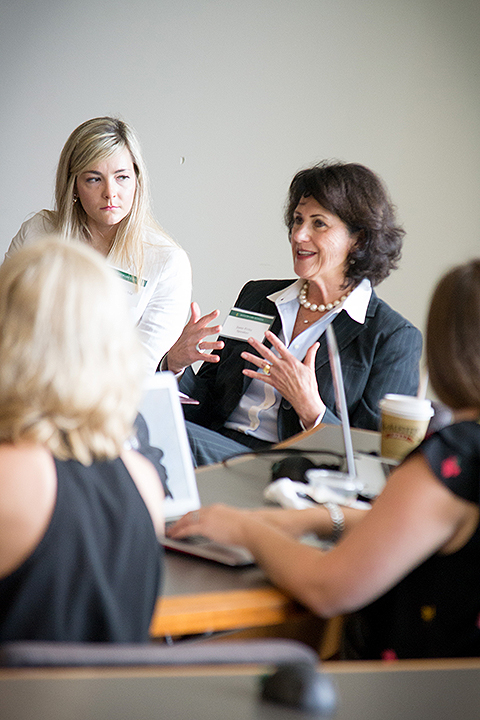
By Kalyn Story | Staff Writer
After two years of research, The American Bar Association Commission on the Future of Legal Services released a report earlier this month finding that most people living in poverty, and the majority of moderate-income individuals, do not receive the legal help they need. In response to these issues, Baylor Law School launched a new program called Legal Mapmaker.
Legal Mapmaker is a workshop at Baylor Law School designed to prepare lawyers to open their own law firms. It provides a model business strategy with two goals: to help lawyers succeed and help the public find affordable legal services by showing lawyers how to provide legal services efficiently, said Stephen Rispoli, assistant dean of student affairs and pro bono programs for the Baylor Law School.
The first Legal Mapmaker™ workshop was conducted at Baylor on Aug. 18 and 19. In the future, the Law School plans to expand the workshop to a three-day program.
The ABA reported that more than 100 million Americans do not have access to legal assistance.
“We thought that if we can start with young lawyers who are coming out of law school and are going to start their own firm – if we can help them be efficient, ethical, and economical – then they will be able to serve that 100 million that cannot currently get legal assistance,” Rispoli said.
Rispoli spearheaded this program with Baylor Law School professor Jim Wren in hopes that Legal Mapmaker would help solve the access-to-justice gap nationwide.
“We want to use this as a model program that we anticipate running beyond Baylor and beyond Texas to help attorneys nationwide better serve the public,” Wren said.
The report also pointed out that people who have legal issues that require a court appearance but cannot afford legal representation must represent themselves, which ends up slowing down the court’s progress on all cases.
“If we can help unclog the court system by getting everyone lawyers, then we’ve done a great thing,” Rispoli said.
Rispoli said that although the need for lawyers right now is great, the access-to-justice gap is not a new problem. Rispoli believes combating the access to justice gap is more plausible than ever thanks to technology.
Rispoli cited a Lone Star Legal Aid statistic that said 5.7 million Americans in Texas qualify for legal assistance from the state, but government-funded legal aid is only able to help around 100,000 Texas families, which they estimate is approximately 20 percent of people in Texas who need legal help but can’t afford it.
“We are encouraging these young lawyers to combat this problem by taking a pro bono case,” Rispoli said. “A lot of people think pro bono means ‘for free.’ Pro bono actually means ‘for the good.’ We want lawyers to take pro bono cases because it’s the right thing to do, because that’s what we’re called to do as lawyers.”
There was a $250 registration fee for the Legal Mapmaker workshop, but participants had the opportunity to get the fee waived if they pledged to take one pro bono case their first year working. More than 30 people participated in the first workshop, and only one person chose to pay the fee.
“Fixing the access-to-justice gap will not happen overnight,” Rispoli said. “It’s not one person making a huge impact, it’s every lawyer getting together and taking care of their responsibility as a lawyer to help people. We believe getting lawyers to go out there and be pro bono ambassadors will greatly diminish the access-to-justice gap.”
Wren mentioned that although Legal Mapmaker is a Baylor program, they have plans to hold workshops at other universities, starting with Texas A&M in August 2017.
“There is an access-to-justice problem nationwide,” Wren said. “Legal Mapmaker is a Baylor program, but we have made it clear we are not tied to keeping it right here. We want to help as many people as we can, so conducting this Baylor-sponsored program at other universities will be the most beneficial to the nation.”
Wren said he anticipates holding the program at universities outside of Baylor every other year.





